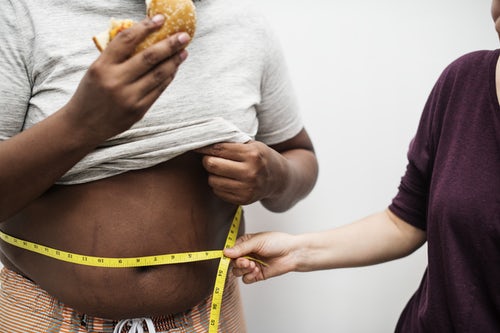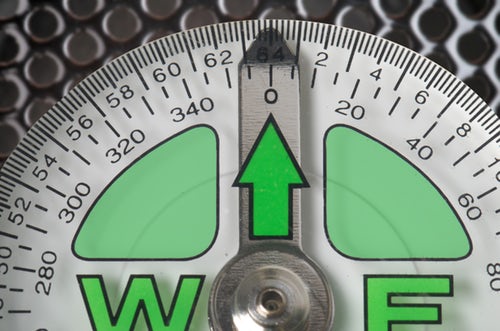Did you see the recent news report about the famous Keto diet, which is the big diet craze right now. While some extol its virtues, others claim it’s dangerous.
So what and who should you believe when it comes to healthful eating and lifestyle?
While anecdotal evidence can be helpful, it’s best to follow what the current research says, as long as the research you’re reading isn’t funded by special interest groups or the chemical or food companies promoting the food or protocol. (Beware, some information you find on “reliable” sites is also tainted by big money.)
So what are the recent findings?
Like a breath of fresh air, the recent findings are…(drum roll, please)…
ONE SIZE DOES NOT FIT ALL!!
Hallelujah!! The research is validating what most of us have known all along.
Everyone is different, and my diet plan may not look like yours. And it probably shouldn’t.
What the recent findings tell us about diet and exercise—
A Time magazine Special Edition* supplement (2019) reports the U.S. weight loss industry to be 66 billion dollars annually. No wonder marketers push so hard for us to buy their new programs!
Some of the ways Americans try to lose weight are through:
- Coordinated diet programs (Weight Watchers, Nutrisystem, etc.)
- Bariatric surgery
- Week or more of expensive stays
- Calorie and step-tracking apps
- Fad diets (they list Paleo and keto in this category)
- General high protein diets, like South Beach, etc.
- Vegan
And yet, with all of these diet choices and dollars spent, more than 70% of Americans still tip the scales into the overweight or obese range.
And that’s a problem health-wise and finance-wise, for all of us. Why? Because more than 70 illnesses—like heart disease, Type II diabetes, and some cancers—area the “direct result” of being too fat!
But shouldn’t losing weight be easy, simply a matter of burning off more calories than you take in?
You would think so, and that’s why I was taught several decades ago. In fact, until just recently, that was the belief. Now scientists agree that isn’t the case. Losing weight, and keeping it off, is hard.
And anyone who has tried to lose weight knows it isn’t true. And 80% of us dieters are aware of another discouraging truth: we’ll regain all of the weight we lost and probably a few pounds more in two years. That sad fact is a finding of a UCLA review of 30 studies on the matter.
As Louis Aronne, director for the Center for Weight Management and Metabolic Clinical Research at Weill-Cornell Medical College says,
“Obesity is a real disease, with real physiological consequences: when you gain weight, the nerves in your hypothalamus that conduct signals from your fat cells to the rest of your brain become damaged. As a result, your brain doesn’t realize that you’re full, so you keep eating.”
If that’s the case, any over-fat person would probably need to stop eating before you get to a point of satiation or fullness.
In short, you probably need to religiously count calories so you don’t risk overeating!
But isn’t a calorie a calorie?
That’s what I was taught in college, and that belief held for years in the scientific community. Now we know that’s not the case. The body handles and digests food differently depending upon the food’s chemical make-up.
One thing I learned 30+ years ago that still holds true, however, is that when you lose an extreme amount of weight—defined as 10% or more of your body weight—your body starts preserving energy by switching specific hormone productions and sending your body into starvation mode. Result? You’ll be walking around feeling constantly famished.
Is that what it comes down to, though, always feeling hungry? Some researchers say yes, while others say there is a better way.
What about exercise?
When trying to lose weight, we can’t avoid exercise. It’s is a key component of the weight loss puzzle. But what type is best, aerobics or resistance training?
That answer hasn’t changed in some time.
For optimal health and successful weight loss that you can maintain, you need both.
While aerobic exercise increases the number of calories you burn off, resistance exercise improves your metabolism or metabolic rate. And a higher metabolic rate means your body burns more calories even when you’re in a relaxed state. You could say you “burn hotter.” You get more bang for the buck.
As my son would say, “Sweet!”
So what should your overall goal be for good health?
Scientists and doctors say your focus should be an improvement in overall health, not just an aim for a number on a scale, or weight poundage pumped in the gym.
But don’t despair! Researchers do know from their findings that It doesn’t really matter whether you’re on a low-fat or low-carb diet, because the end result for both types of eaters is the same amount of lost weight! That’s the opinion of Caroline Apovian, a weight-loss specialist at the Boston University School of Medicine. She’s also president of the Obesity Society.
Hallie Levine, the author of the chapter “What a Healthy Diet Looks Like” in the Time supplement also quotes Apovian as saying,
“I usually encourage patients to eat as much protein, fruits and non-starchy vegetables as they want, while restricting starch intake to one or two servings a day.”
Why is that? It’s because protein is essential to growth and healing and muscle mass building. That’s important because it’s the muscle that’s primarily responsible for your metabolism level.
Another critical take-home message is that
a lower carb diet (30% or calories from protein and the remainder from low-glycemic foods—the kind that cause your blood sugar to rise quickly) is much easier to stick to because it’s less likely to trigger those nagging hunger pangs.
So what would fall into the low-glycemic column? That would be foods like:
- non-starchy vegetables, like carrots, peas, sweet potatoes
- nuts
- beans/legumes, like garbanzo beans, white beans, black-eyed peas and lentils
- some fruits (Beware: many fruits will spike quickly your blood sugar! And fruit juice almost always will.)
- eggs, dairy, meat, fish and fish oils
(For more in-depth information on low-glycemic foods, see the American Diabetes Association website.
And the Time article mentioned one more important fact:
When you do have carbs on your plate, try to eat them last.
Eating this way, rather than chowing down all of the hot bread the server delivers to your table to keep you occupied before the meal arrives, helps keeps your blood sugar down and those all-important insulin levels low
So you could eat your bread, if you eat it for dessert!
So how much weight loss is enough?
Evidently losing just 5% – 10% of your body weight results in positive health gains. Your risk for diseases like diabetes and cardiovascular disease can drop. And that’s great news!
So maybe before we make grandiose plans to whittle our tummies and legs into a size 6 jeans, when we’re currently wearing (comfortably!) a size 12 isn’t what we should aim for.
How many pounds lost would that be?
Unfortunately, because clothing manufacturers’ sizes are all over the map, it’s no longer easy to tell. But, in general, the consensus is that you would need to lose 8 -10 pounds to drop one pant size.
For a 150-pound woman, that’s within the 5% – 10% range.
But let’s not get ahead of ourselves.
As we go forward, we’ll look at a variety of important findings, like what scientists learned from the reality show The Biggest Loser, why your particular diet may not be working for you, finding your dieting sweet spot for health, weight management and fitness, and what Blue Zone model living can do for your health longevity.
We’ll also delve more into the exercise component.
Exciting stuff!
See you back here next Wednesday with the next installment.
Blessings,
Andrea
“Certainly there was an Eden….We all long for it, and we are constantly glimpsing it.” —J.R.R. Tolkien
(*If you want this information in more detail and in your library, I encourage you to pick up a copy of the Special Time Edition The Science of Weight Loss at your local drugstore or bookstore. It’s on sale until April 5, 2019.)



